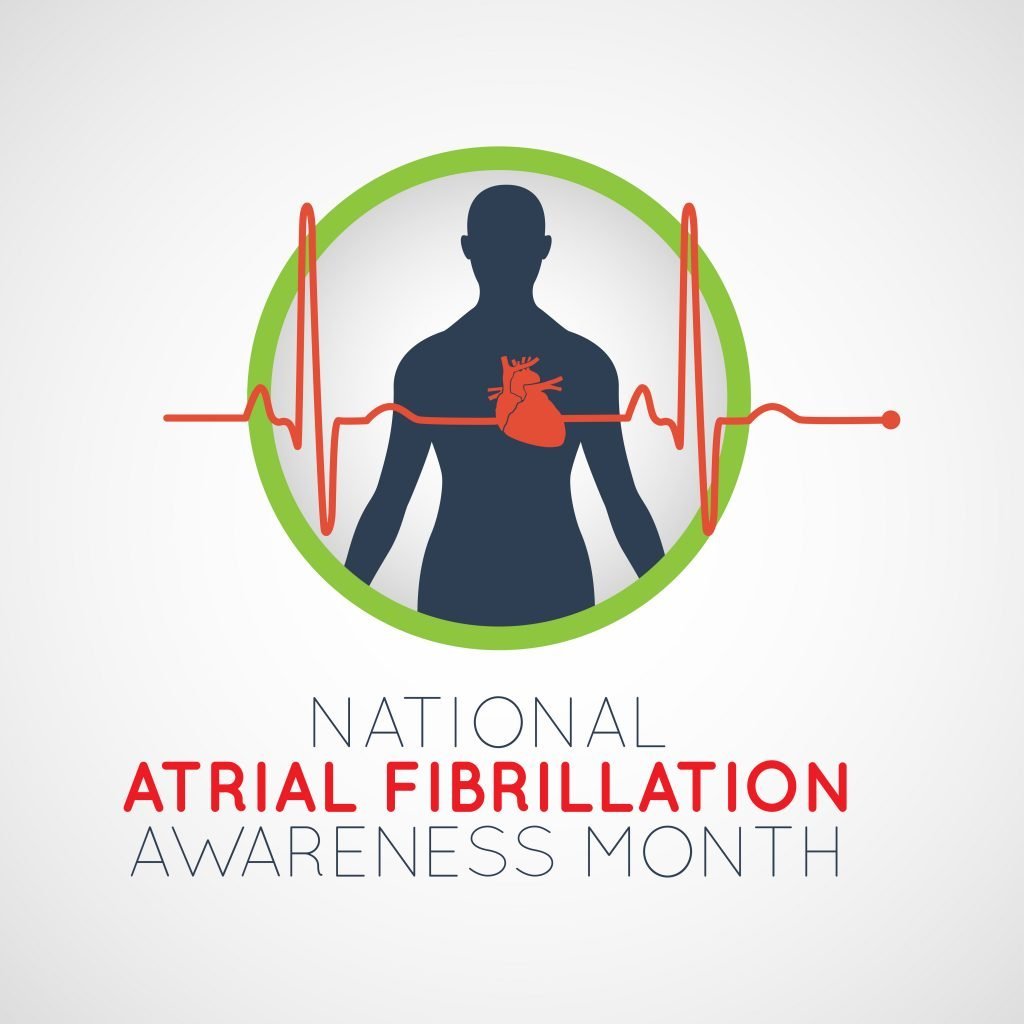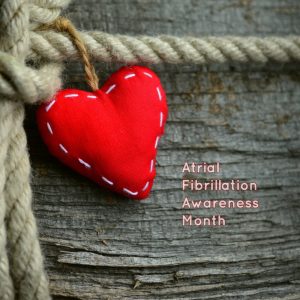September is Atrial Fibrillation Awareness Month, which serves as a way to help patients and healthcare providers learn more about this complex condition.
Often times the first question raised when discussing this condition is “what is an atrial fibrillation (AFib)?AFib is an irregular heart beat that can lead to serious complications, such as dementia, heart failure, stroke, or even death. Often times, many of those affected by the condition don’t realize that they have it, and many who do know they have it don’t realize how serious the condition can be. All too often, healthcare providers minimize the effects of the condition.
Every year approximately 75,000 Americans learn that they have AFib; in fact, it’s the most common type of arrhythmia, or abnormal heart rhythm.
If you or your loved ones are interested in learning more about this condition, Unicity Healthcare is here to help. Below we will provide education and information on what is AFib, and how you can take the necessary steps to protect yourself from complications of this condition.
Understand Atrial Fibrillation
Atrial fibrillation, commonly known as Afib or AF, is an irregular heartbeat caused by an abnormal heart rhythm that makes the upper heart chambers (the atria) quiver.
According to the American Heart Association, about 2.7 million people are estimated to have Afib. People over the age of 65 are more likely to develop Afib, although it can affect anyone.
While AFib itself generally is not life-threatening, complications from Afib can be very serious. When blood stays in the quivering heart chamber, it can clot. Blood clots can travel to organs such as the brain, which can lead to stroke. Approximately 35 percent of people with Afib will go on to suffer a stroke, which is why it is essential to diagnose and treat Afib at the outset.
To understand Afib, including how it can be treated, it helps to learn how the heart functions normally. By learning about how the heart works, risk factors for atrial fibrillation as well as how Afib is diagnosed and can be treated.
Types Of AFib
AFib used to be described as chronic or acute, with chronic AFib lasting longer than one week. However once new guidelines were released in 2014, chronic AFib is now called long-standing, persistent AFib. Long-standing, persistent AFib lasts longer than 12 months.
Other types of AFib are:
- paroxysmal: AFib that is intermittent and lasts less than one week
- persistent: AFib that is continuous for more than one week but no more than 12 months
- permanent: AFib that is continuous and isn’t treated
Symptoms Of AFib
People with Afib describe a variety of symptoms, ranging from an alarming sensation that their heart is racing to a mild fluttery feeling in their chest. Some experience chest pain or pressure, while others report feel dizzy or weak. Others experience no symptoms at all. Just as Afib symptoms vary, so does when they occur. For some people, the symptoms come and go, while others are constantly bothered by them.
Atrial fibrillation is caused by abnormal electrical discharges (signals) that generate chaotically throughout the upper chambers of the heart (atria). It reduces the ability of the atria to pump blood into the ventricles, and usually causes the heart to beat too rapidly.
Symptoms of the condition include:
- Palpitations
- Dizziness
- Fainting
- Weakness
- Fatigue
- Shortness of breath
- Chest pain
The symptoms of Afib can be frightening, especially if you are feeling them for the first time. Afib symptoms should never be dismissed. It is essential to get medical help at once, since some AFib symptoms – particularly chest pain or pressure and sudden weakness -are also warning signs of a heart attack.
Those At Risk For Developing AFib
Anyone can develop AFib at any time. You’re at risk of developing AFib if you:
- are over 60
- have high blood pressure
- have heart disease or structural heart problems
- have sick sinus syndrome
- have had heart surgery
- are a binge drinker
- have a family history of AFib
- have sleep apnea
- have chronic health conditions, such as hyperthyroidism, diabetes, or lung disease
Diagnosis
AFib doesn’t always cause symptoms, so it can be difficult to diagnose. You may have AFib for a long time and not know it until you see your doctor for a routine checkup or another condition.
If your doctor suspects that you have AFib, they’ll review your symptoms and medical history. A test known as an electrocardiogram (EKG) will be done to evaluate your heart’s electrical activity. This test should pick up long-standing, persistent AFib.
Other tests that may be ordered are:
- an event monitor, such as a Holter monitor, that records your heart’s electrical activity for a period of time
- a stress test to evaluate how your heart functions during exercise
- an echocardiogram to view the structure of your heart and how well it’s pumping
- a chest X-ray to look for fluid in your heart or lungs
- a transesophageal echocardiogram to get a closer look at your heart via your esophagus
- blood tests to check for hyperthyroidism or other conditions that may trigger AFib
Tips To Help Prevent AFib
Most times, AFib can’t be prevented. If you have a condition linked to AFib such as sleep apnea or hyperthyroidism, treating it may prevent further episodes. Avoiding common AFib triggers such as stress, caffeine, and excessive alcohol may also prevent the condition.
A heart-healthy lifestyle helps reduce your risk of heart problems overall. Some tips to follow are belowl:
- Avoid foods high in saturated fats or trans fats.
- Eat plenty of fruits, vegetables, and whole grains.
- Add healthy fats to your diet, such as omega-3s, olive oil, and avocados.
- Avoid excessive alcohol consumption, such as binge drinking.
- Stop smoking.
- Avoid caffeine.
- Stay active and exercise regularly.
- Manage stress.
- Control your blood sugar.
- Control your blood pressure.
- Maintain a healthy weight.
Treating And Controlling AFib
Atrial fibrillation can come and go on its own, or last the rest of your lifetime. When AFib comes and goes within a few minutes to a few hours it is considered paroxysmal AFib. The irregular rhythm from atrial fibrillation may begin to last longer and longer or cause worsening symptoms at which point it will need to be treated and controlled.
In some cases, atrial fibrillation can be corrected with an electric shock to the heart called a cardioversion. In emergency cases this may be the only choice to control the AFib. Medications may also be tried to do the cardioversion of your heart rhythm. If your AFib has been going on for more than 48 hours, you may not be a candidate for cardioversion as your risk of having blood clots that could lead to stroke is increased.
Generally, however, patients with atrial fibrillation are usually prescribed a combination of medicines to prevent complications. Blood thinners or anti-clotting medications help prevent the risk of stroke. Medications that control the rate that your heart beats keep the heart from beating too fast. Some medications are specifically designed to control the electrical rhythm of the heart, keeping it from becoming more irregular and chaotic.
Other treatment options for serious cases of AFib are an ablation, surgery or pacemaker. Discuss the possible outcomes of your heart treatment with your cardiologist.
Life With AFib: Prognosis
If your atrial fibrillation iscontr olled, or corrected with a heart procedure, you may not have any life-changing symptoms from your AFib. While some people with chronic AFib need to be maintained on medications and blood thinners for the rest of their lives, the side effects of these medications can cause long-term complications – so it’s best to discuss your medications with your cardiologist to see what limitations they may cause on your lifestyle.
Spread The Awareness
During September, speak with your friends and family members about how to identify the symptoms of AFib. The sooner they are able to spot the signs of the condition, the sooner they will be able to act. By simply raising awareness about AFib in your circle of friends and family members, you will help the people you love lead longer and healthier lives.
To learn more about AFib, stroke and reducing your risks, go www.alittlefib.org
You can also find more information on “Atrial Fibrillation Awareness Month” on the National Stroke Association’s website at www.stroke.org
* * * *





